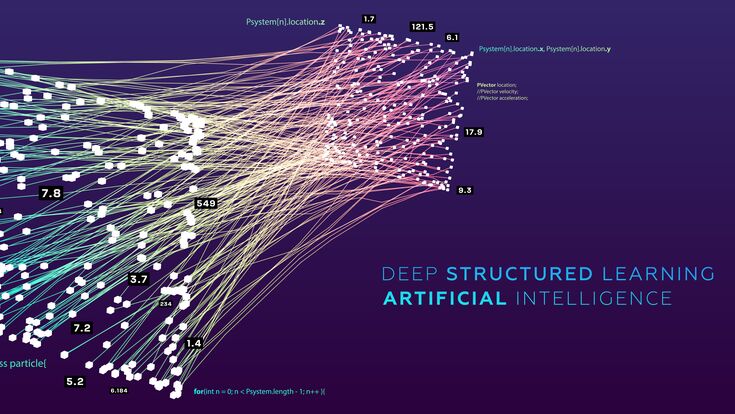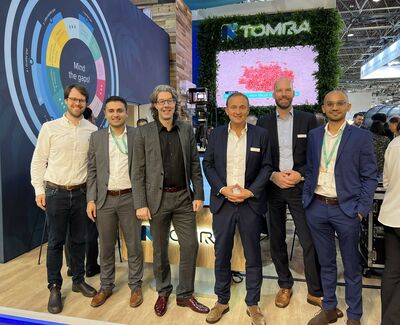TOMRA and PolyPerception : New collaboration for AI-powered material analysis technology

Data-driven technology is becoming more and more important in the recycling process. The sheer infinite variability in the kinds, shapes of the objects that end up on the conveyor belts demands ever-improving technology. To this end Norwegian recycling specialist TOMRA now collaborates with tech start-up PolyPerception. The up-and-coming company uses artificial intelligence (AI) to help recycling and waste sorting facilities optimise their performance.
The collaboration aims to improve the sorting of polymers. The partners therefore focus on the development of a waste analysis tool based on deep learning that is a complementary solution to TOMRA’s leading sorting technologies for polymer sorting applications. TOMRA will support speeding up PolyPerception’s commercial development.
Challenges in polymer recycling
It is the first time that TOMRA collaborates closely with a start-up in its early stage. “From what we have seen and assessed in the market, we believe, PolyPerception has an innovative approach and are at the right stage in their development for such a collaboration,”, says Dr. Felix Flemming, SVP, Head of Digital TOMRA Sorting. “The founders and their team are like-minded, match our TOMRA culture, and share our passion for digital, deep learning, and the transformation to a circular economy.”
Nicolas Braem, CEO & Co-Founder of PolyPerception about the collaboration with TOMRA: “We are thrilled to be collaborating with TOMRA, an industry leader in recycling. Our collaboration will accelerate the development of our material analysis technology. As a mission-driven company, most of all we’re excited to work with like-minded people at TOMRA and to broaden our impact.”

Polymers present a special challenge to recyclers, as Flemming explains: “Today, many products are not designed for recycling - the detection is hampered by sleeved, the use of black plastics and additives - and pose challenges in the recovery and recycling process.” Another challenge is the pure recovery of mono fractions of one material type or colour. “The purer the materials recovered, the higher the quality of the recyclates. The latter is particularly important when it comes to the differentiation between food-contact and non-food-contact materials because recyclates have to fulfill the highest quality standards to being used in food grade applications to prevent health risks,” he says adding: “Another good example is the recovery of HDPE silicone cartridges from a HDPE stream. Whereas the NIR (near infrared) sorter recognizes the HDPE tube, it does not have sufficient information to determine whether it is PE packaging or a silicone cartridge which is considered a major contaminant in PE streams. This has been a challenge for quite long, but thanks to our deep learning technology GAIN, PE-silicone cartridges can be detected and removed from post-consumer PE streams.”
Important recycled content targets
Flemming welcomes current regulations – planned or already implemented – from the EU waste framework directive to the EPA Recycling Strategy: “Anything that promotes recycling and accelerates the transition to a circular economy is beneficial to societies and the industry.” According to TOMRA the introduction of a broader set of recycled content targets was overdue in order to provide investment security for the plastic recycling industry and to support the numerous voluntary commitments and pledges from FMCGs. One can always debate if they can be higher or even more ambitious, but, at least, it’s a very promising start, the company says. Equally important is the introduction of the design-4-recycling criteria, which are urgently needed.

